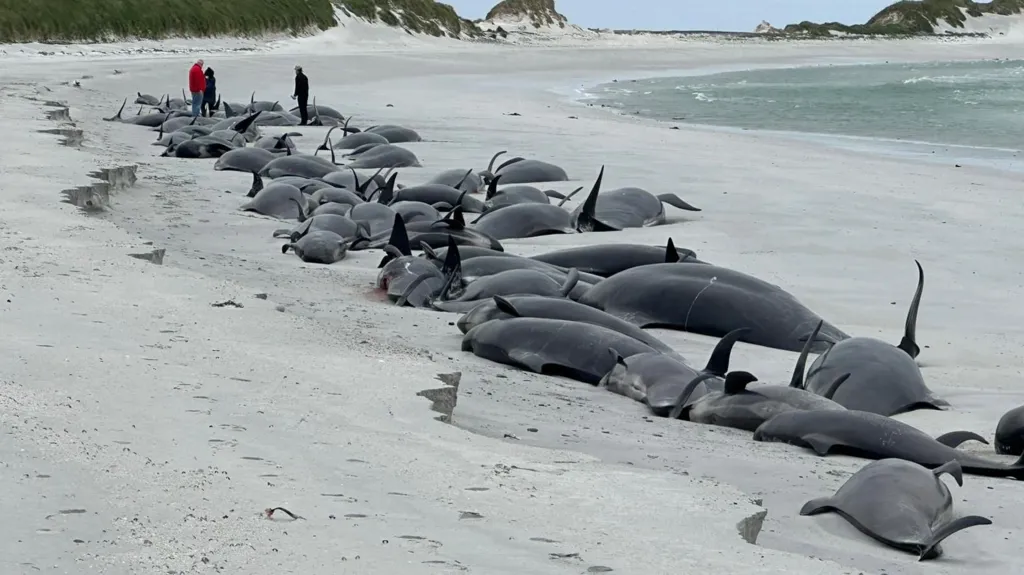A tragic incident unfolded on Tresness Beach in Orkney as a pod of 77 pilot whales washed ashore, marking what could be one of the biggest mass strandings in decades. Although 12 of the creatures were initially found alive, the decision was made to euthanise them after attempts to refloat them proved futile.
The pod consisted of both male and female whales, as well as calves and juveniles, with some individuals measuring up to seven meters in length. The exact cause of the stranding remains unknown, but experts speculate that one whale may have encountered trouble, prompting the rest of the pod to come to its aid.
To allow for further investigations, the public has been urged to stay away from the area. This incident is believed to be the largest stranding event in Scotland since the establishment of the Scottish Marine Animal Stranding Scheme (SMASS) in 1995, although similar scale strandings have been witnessed in recent years.
In 2020, an entire pod of 55 pilot whales encountered a similar fate on Lewis, with only 15 of them surviving the ordeal. One whale managed to be successfully re-floated, while the others had to be euthanised. Additionally, in 2011, around 60-70 pilot whales ventured into shallow waters in Sutherland.
To assess the possibility of rescue, experts from the British Divers Marine Life Rescue (BDMLR), the Scottish SPCA, and marine veterinarians from the mainland journeyed to Sanday. However, the high tide and the soft sand on the beach posed challenges in attempting to right the whales.
Despite pouring seawater over the stranded animals in an effort to keep them alive, the difficult decision to euthanise them was ultimately made. Emma Neave-Webb from the BDMLR acknowledged that while it was a distressing situation, it was important to approach it realistically.
As the authorities discuss how best to dispose of the whales’ bodies, Orkney Islands Council has indicated that, given the scale of the stranding and potential public health implications, definitive action will likely be required. This could involve burying the carcasses on-site or transporting them to a designated grave site elsewhere.
Andrew Brownlow from the Scottish Marine Animal Stranding Scheme expressed concern over the increasing frequency and magnitude of mass strandings in Scotland. He suggested that the rise could be attributed to a larger whale population or an increase in environmental hazards faced by these creatures.
The loss of such a significant number of pilot whales is a devastating reminder of the challenges faced by marine animals and the need for continued efforts to understand and mitigate the factors causing strandings.

